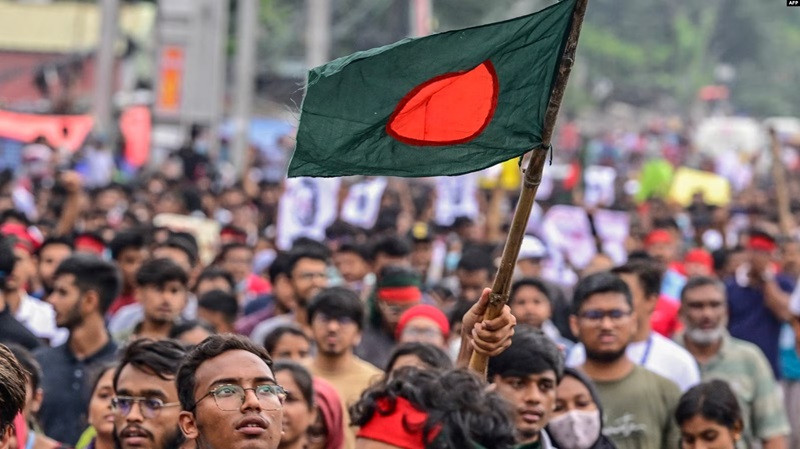
The Bangladeshi government declared an indefinite nationwide curfew and shut down internet services after at least 77 people, including 14 policemen, were killed when police fired tear gas and rubber bullets to disperse hundreds of thousands of protesters on Sunday.
The protesters, demanding resignation of Prime Minister Sheikh Hasina, clashed with the government supporters, with sticks and knives, while security forces fired rifles. Police said protesters attacked their officers, including storming a station in the north-eastern town of Enayetpur.
The unrest, that killed a total of at least 283 people since it began in July, is Prime Minister Hasina's biggest test in her 15-year regime after she won a fourth straight term in elections that were boycotted by the main opposition Bangladesh Nationalist Party (BNP).
Demonstrators blocked major highways as student protesters launched a non-cooperation programme to press for the government's resignation, and violence spread nationwide. AFP journalists in Dhaka reported hearing sustained crackles of gunfire after dark, with protesters defying a nationwide curfew.
At least 12 people were killed in the capital, police and doctors at hospitals said, several with bullet wounds, while 18 were killed in northern district of Sirajganj. Twelve policemen were beaten to death in Sirajganj, senior police official Bijoy Bosak said.
In several cases, soldiers and police did not intervene to stem the protests, unlike the past month of rallies that repeatedly ended in deadly crackdowns. Demonstrators in Dhaka, waved a Bangladeshi flag on top of an armoured car as soldiers watched, according to videos on social media verified by AFP.
A protest leader called on the protesters to march on capital on Monday (today). "The time has come for the final protest", Asif Mahmud, one of the key leaders in the nationwide civil disobedience campaign, said.
In July, the troops briefly imposed order when the first wave of violence erupted but the protesters returned to the streets in huge numbers this month in a non-cooperation movement aimed at paralysing the government resumed.
Vast crowds of protesters, many wielding sticks, packed into Dhaka's central Shahbagh Square on Sunday, with street battles in multiple sites, police said. "There were clashes between students and the ruling party men," a police officer said, adding that two young men were killed in Munshiganj district.
Police and doctors also reported deaths in districts in the north, west, south and centre of the country, as the protests grew into a wider anti-government movement across the South Asian nation of about 170 million people.
The demonstrations had attracted people from all strata of Bangladesh society, including film stars, musicians and singers. And in a hugely symbolic rebuke of Hasina, a respected former army chief demanded the government withdraw troops and allow protests.
"We call on the incumbent government to withdraw the armed forces from the street immediately," former army chief Gen Ikbal Karim Bhuiyan told reporters in a joint statement alongside other senior ex-officers, condemning "egregious killings, torture, disappearances and mass arrests".
Current army chief Waker-uz-Zaman told officers at military headquarters in Dhaka on Saturday the "Bangladesh Army is the symbol of trust of the people", adding in an army statement: "It always stood by the people and will do so for the sake of people and in any need of the state."
Hasina has ruled Bangladesh since 2009 and won her fourth consecutive election in January. Her government is accused by rights groups of misusing state institutions to entrench its hold on power and stamp out dissent, including through the extrajudicial killing of opposition activists.
"Those who are protesting on the streets right now are not students, but terrorists who are out to destabilise the nation," Hasina said after a national security panel meeting, attended by the chiefs of the army, navy, air force, police and other agencies.
Police and witnesses said that at least eight people, including two students and a ruling party leader, were killed and dozens injured in fierce clashes in several places in Dhaka; while two construction workers were killed on their way to work and 30 injured in the central district of Munsiganj.
In the north-eastern district of Pabna, at least three people were killed and 50 injured during a clash between protesters and activists of Hasina's ruling Awami League party. Three people were killed in violence in the northern district of Bogura, and 53 were killed in 12 other districts, hospital officials said.
Social media platforms Facebook and WhatsApp were not available, even via broadband connections. Bangladesh authorities instructed the country's telecoms providers on Sunday to shut down 4G, effectively disabling internet services, according to a confidential government memo seen by Reuters.
AGENCIES

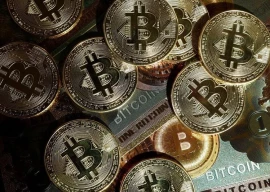
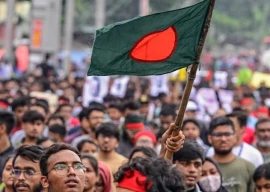
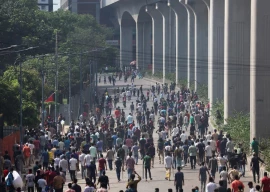
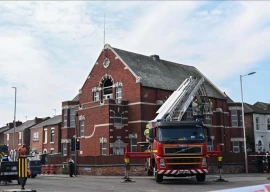
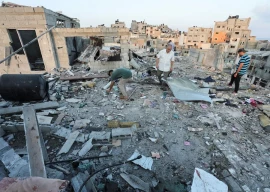
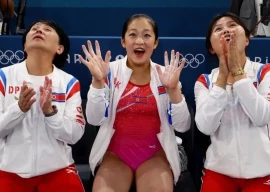
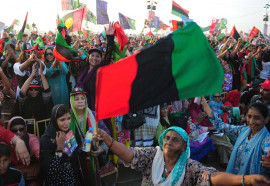

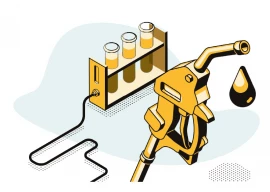

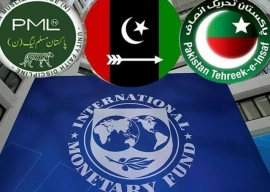
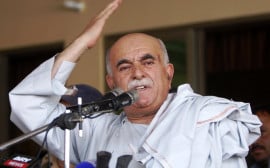






COMMENTS
Comments are moderated and generally will be posted if they are on-topic and not abusive.
For more information, please see our Comments FAQ